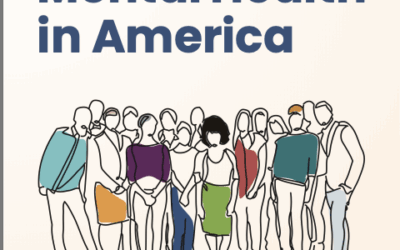Overcrowding at Virginia’s nine state psychiatric hospitals has renewed calls for the state to build more hospitals. The state hospitals have reached capacity several times in recent years, and the pandemic has brought an already stressed system to a crisis point.
The lack of an inpatient bed means some adults and children in crisis are waiting indefinitely in emergency departments for an available psychiatric placement. If subject to an involuntary commitment order, they may be waiting in handcuffs and with a law enforcement officer required to be present. This is not the way we should treat someone living with a serious illness.
There is an immediate need for solutions, but Virginia already has one of the highest numbers of state psychiatric beds per capita. No two individual crisis events or recoveries are the same, and placement in one of the state’s hospitals is only one of several ways to treat someone in a mental health crisis.
State hospitals are the most expensive option, with the most restrictive conditions for mental health care. Instead of adding more state hospital beds, we should make better use of the ones we have, while expanding the tools available statewide for appropriate care and support in the least restrictive setting.
Admissions: State hospitals are full today partly because private hospitals are admitting a lower percentage of involuntary patients. For someone in crisis who meets certain criteria, a magistrate can issue a 72-hour Temporary Detention Order (TDO) for evaluation and treatment. Local private hospitals take most of these admissions, along with voluntary admissions for mental health treatment. They are the preferred place for short term stays, but private hospitals don’t have to accept a patient, and when no private hospital has room or will accept someone under a TDO, state hospitals are required to admit them.
The Department of Behavioral Health and Developmental Services (DBHDS) reports that from 2015 to 2020 the total number of TDOs issued in Virginia remained the same at around 25,000, but the state hospital share of these admissions more than doubled, from 11% to 25%. Private hospitals report several reasons for the change, intensified by the pandemic, including staff shortages that require taking available beds off line, and an increase in voluntary admissions.
Discharges: On any given day the Virginia state hospital “Extraordinary Barriers List” includes around 200 patients who have been clinically cleared for discharge, but remain in the hospital because of legal or efficiency barriers or because there is just no place for them to go. Housing with supportive programming that matches an individual’s specific needs has shown strong positive health outcomes in Virginia, and frees up state hospital space. The state recently increased funding for more supportive housing, but Virginia needs thousands of additional spaces.
Workforce: Hospital beds don’t help if there’s no one to staff them. Staffing shortages, severely worsened by the pandemic, have reduced bed capacity in hospitals throughout the state. This adds more pressure on our state hospital system, which struggles with its own critical lack of personnel. Mental Health America ranks Virginia 41st nationally in access to a trained mental health workforce. With more mental health professionals and specialists we can put existing but unstaffed hospital beds back on line, reduce the wait list for community care, and add new options to prevent hospitalization. We should maintain expanded telehealth services, offer signing bonuses in the highest need locations, and double the state’s new loan repayment incentive program.
Community Crisis Care: A permanent solution to the current bed crisis requires a robust system of community care. Fortunately, the state is immersed in planning solutions. These include developing a network of regional and mobile crisis teams, a “988” emergency call center to replace 911 for behavioral health crises, and expanding crisis receiving centers and stabilization units. Plans for 23-hour observation sites, peer respite programs and other alternatives will reduce hospital admissions. Arizona successfully diverted over 40% of behavioral health crisis calls from hospital emergency rooms to a strong network of community options.
Strategic Investing: Data-driven services that foster resiliency, strengthen families, and support recovery reduce the need for TDOs. Better Medicaid payment rates and state incentive funding would generate more private, specialized community facilities. Legislators should strengthen their support for school based mental health, local public behavioral health agencies, and transforming Medicaid to align with evidence-based practices.
Hope Now: A receding pandemic and the multiple efforts to build out our crisis system should begin relieving pressure on bed capacity in coming months. But more people than ever are experiencing mental health problems and daily crises right now. Policy makers should support the emergency efforts to cut red tape, open treatment slots in private facilities, and begin mental health treatment while still in the emergency room.
Every day there are thousands of individuals making heroic efforts to get better, to stay alive, or to help someone else get through a traumatic crisis. These include Community Services Board staff, hospital care teams, family members, friends, state employees, law enforcement officers and many more. They deserve a better system.
We can reimagine our mental hospitals to create opportunities for people who are best served in a long term facility. Let’s use this most costly resource appropriately and efficiently. If we address institutional care in concert with the entire range of private and public mental health services, we can solve the crisis in our mental health system.
Bruce Cruser, Executive Director
Mental Health America of Virginia



